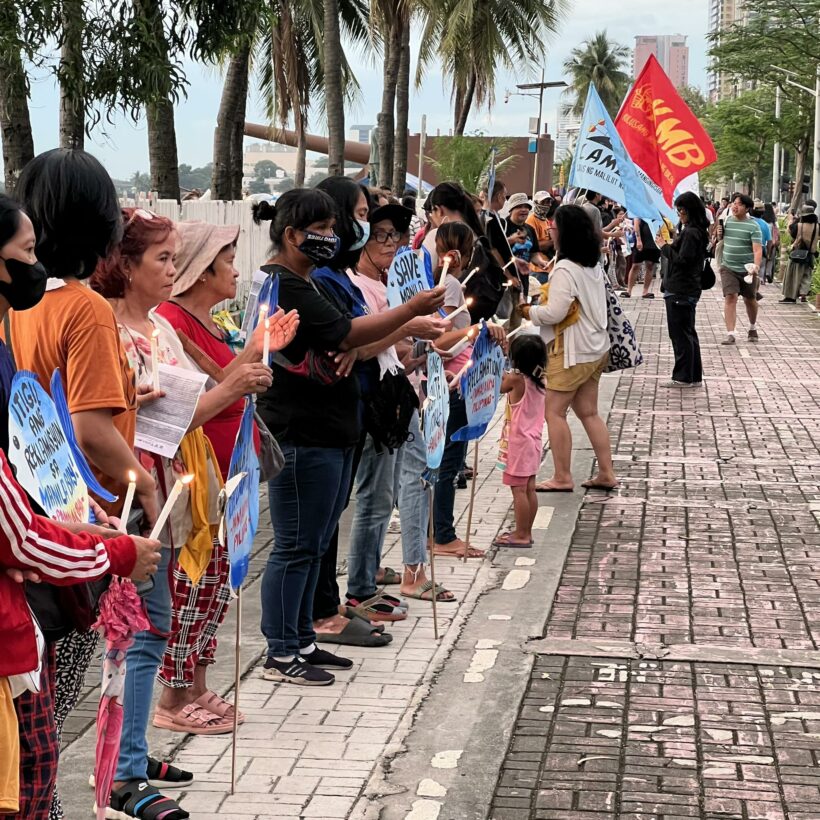What was once the nature-rich, 190-kilometer (118 miles) Manila Bay coastline famous for its beautiful sunset, straddling the highly populous capital region of Metro Manila and several provincial regions, is facing severe environmental degradation called reclamation.
These reclamation projects pose grave threats to natural life support systems, destroying mangroves, seagrass beds, wetlands, and other marine habitats, displacing communities, and destroying the livelihoods of many, farmers and fishermen alike.
On October 18, 2023, anti-reclamation advocates representing a wide sector of Philippine society came together on Roxas Boulevard along Manila Bay to let their voices be heard.
“Save Our Sunset, Save Manila Bay”
“Defend Manila Bay”
A protest event organized in collaboration with various faith-based and civil society groups, they gathered to amplify this resounding call coming from diverse sectors, especially those from the affected communities, to put an end to the destructive reclamation in Manila Bay.
They joined to form a formidable human chain along the sidewalks of Roxas Blvd, stretching from the US Embassy to the Cultural Center of the Philippines.
The rally began with speeches and talks given by several representatives of the different groups that gathered. There were advocates from the two big networks, People’s Network for the Integrity of Coastal Habitats and Ecosystems (People’s NICHE) and the Church-CSO Empowerment for Ecological Sustainability (Eco-Convergence), who joined forces to call for an immediate and full suspension of reclamation projects in Manila Bay.*
In a press release issued by People’s Niche, “Two months have slipped by since President Marcos Jr. boldly proclaimed the suspension of all reclamation activities in Manila Bay. However, no actual legislation or clear legal guidelines have come about, and coastal communities across the Bay Area and beyond are still in jeopardy,” said Jonila Castro from AKAP KA Manila Bay.”
Jhed Tamano, another anti-reclamation advocate, also noted that “State-sponsored violence in coastal areas is often aimed to silence communities and people who dare to oppose reclamation projects, standing up against the ecological and community threats they pose.” Tamano and Castro were abducted on September 2 in Orion, Bataan, while they were conducting consultations with fisherfolk last.”
“More than just looking at the numbers, these are actual productive marine and aquatic ecosystems that will be destroyed by reclamation activities. Fisherfolk stand to lose up to 90 percent of their incomes, and thousands will be displaced from coastal areas for these projects,” said Fernando ‘Ka Pando’ Hicap, national chairperson of PAMALAKAYA, a national federation of fisherfolk.
Instead of reclamation, the groups called for the “genuine rehabilitation” of Manila Bay, which includes “restoring ecosystems and providing support for fisherfolk communities.” For religious groups such as the Promotion of Church People’s Response (PCPR), Pope Francis’s Laudato Si’ encyclical is a reminder that “our duty to protect the environment is intertwined with our moral responsibility to safeguard the well-being of present and future generations, underscoring the interconnectedness of all life in our common home.”
“Any potential revenue from non-existent projects is overshadowed by the profound ecological and economic impacts of mangrove destruction and soil dumping in valuable coastal areas,” said Cleng Julve, advocacy officer of the science advocacy group AGHAM. “No matter how many billions of pesos in investments and profit are promised by reclamation proponents, the question remains: who will benefit, and who will be left behind?
After the assembly and talks at the Rajah Sulayman Park, everyone trooped to the Baywalk carrying their banners, and posters, lighting candles up, in a long human chain against the Manila Bay sunset.
Here are some photos of this rally, a protest rally urging the government and the powers-that-be to not just suspend all the reclamation projects verbally, but truly end it and begin rehabilitation.**
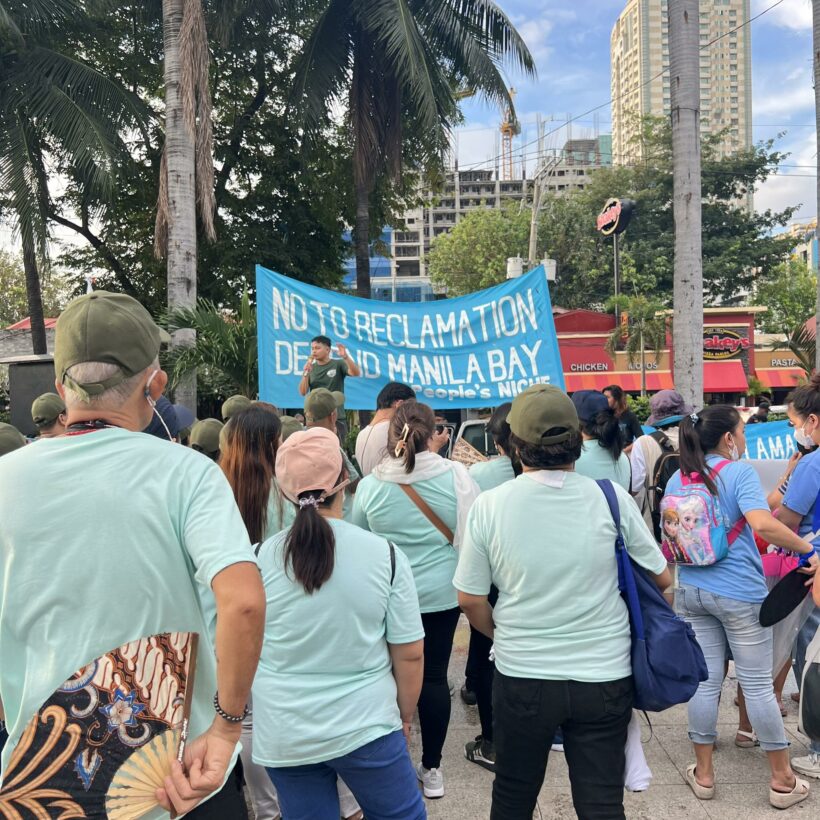
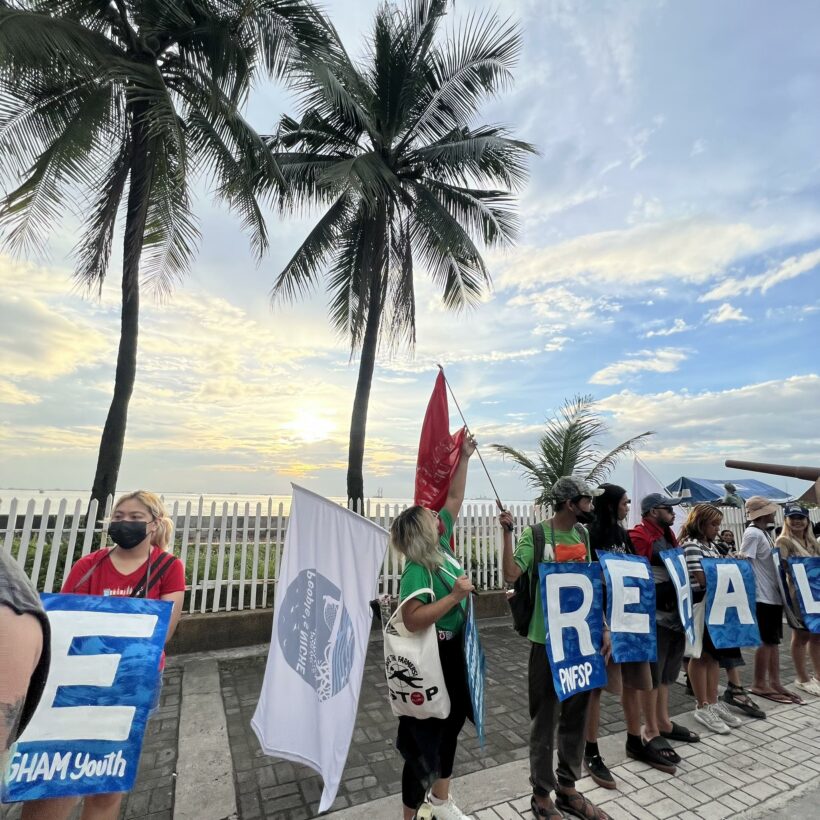
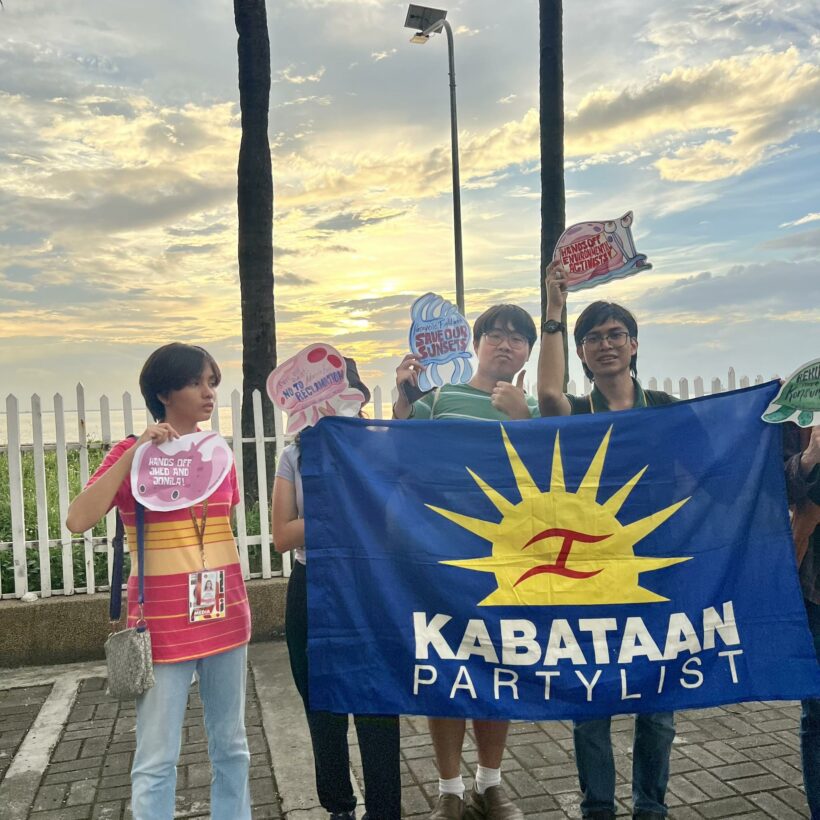
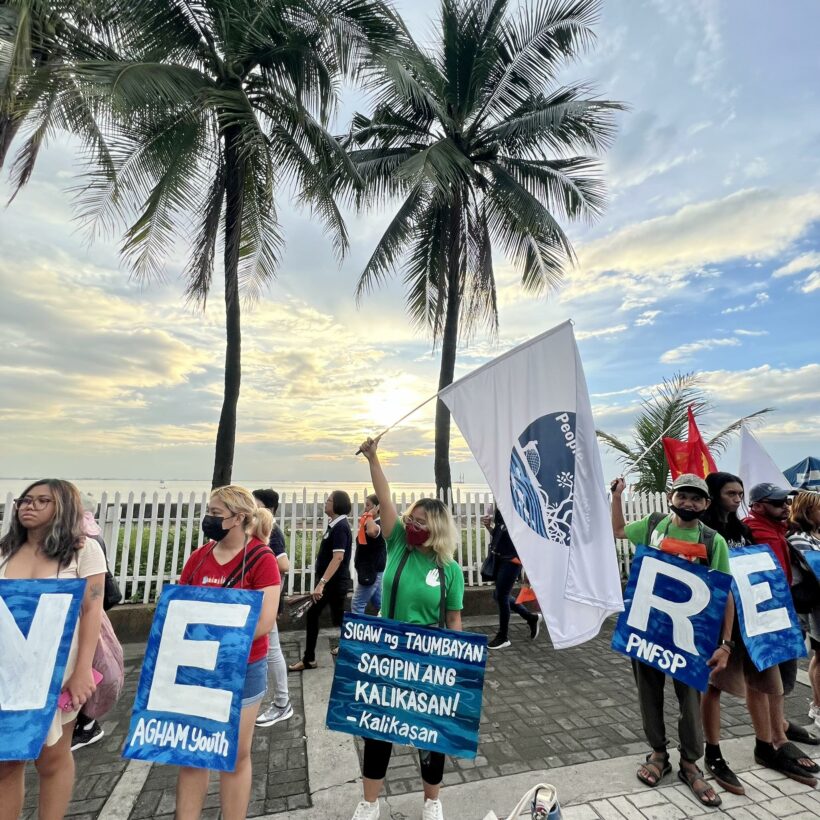
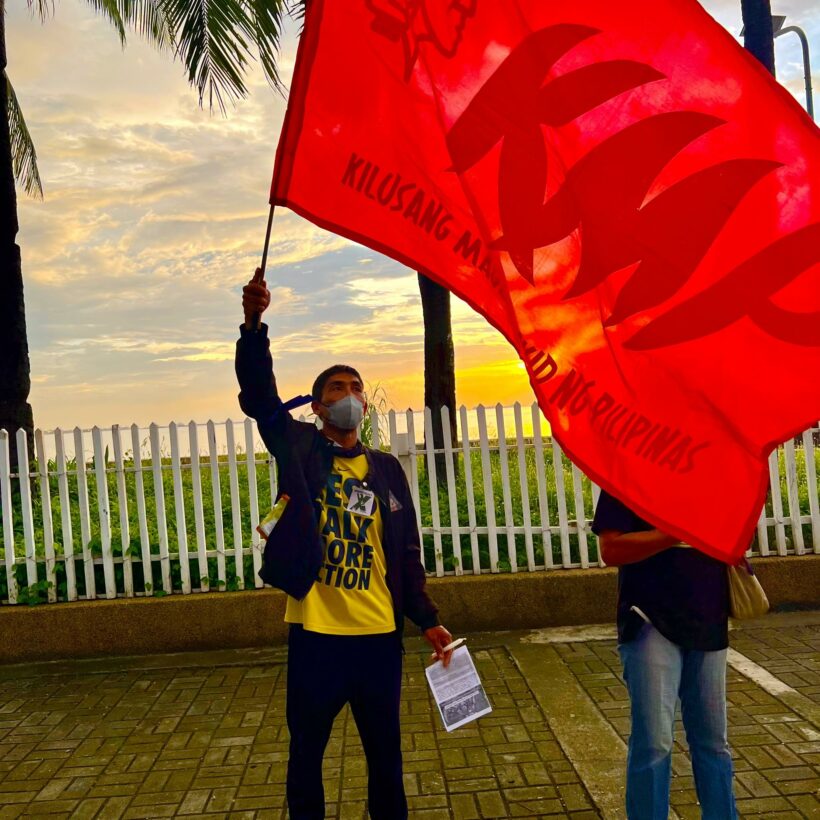
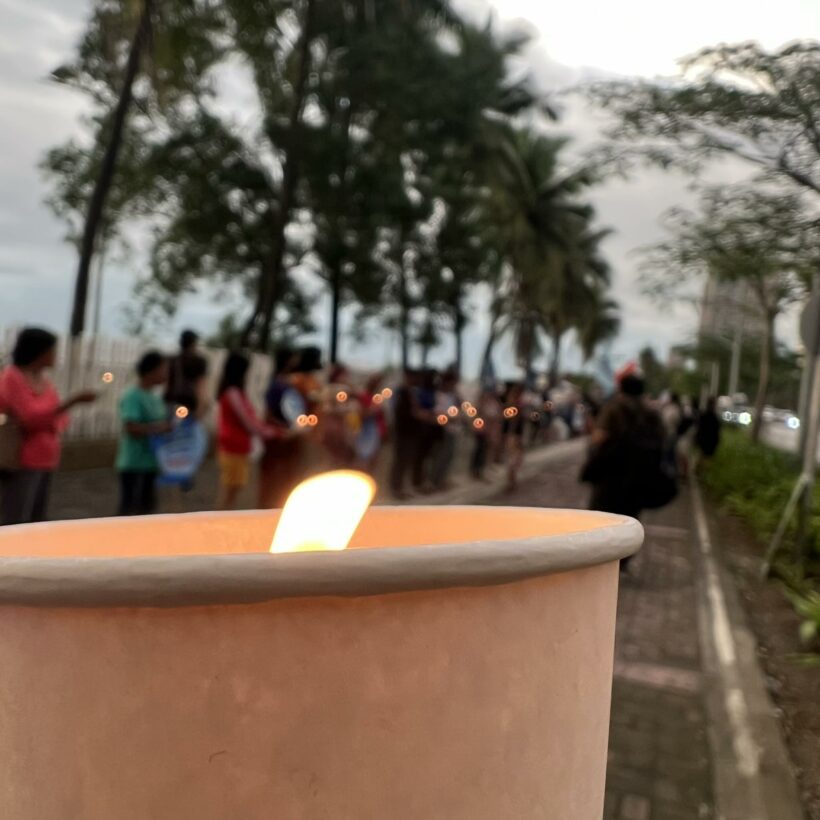
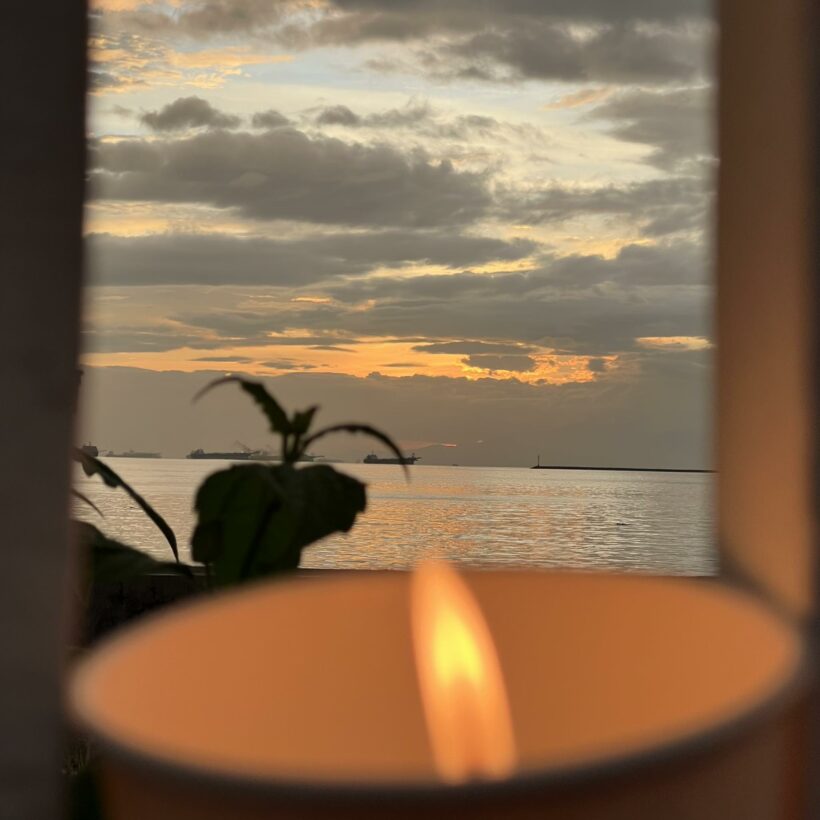
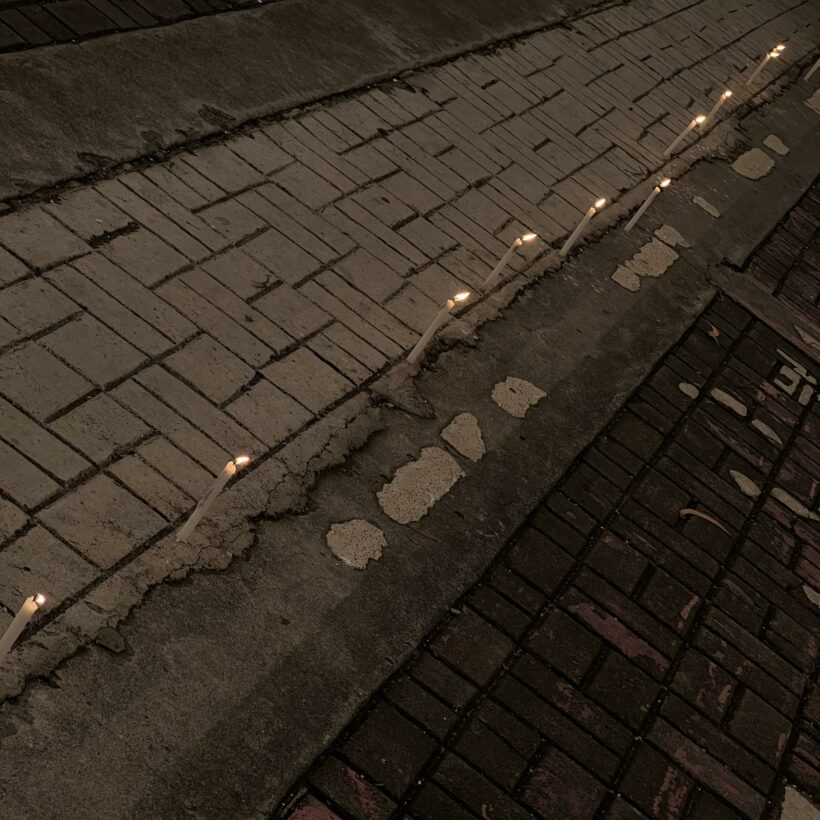
*People’s NICHE is a nationwide alliance of civil society groups and community organizations. It is composed of Kalikasan People’s Network for the Environment, PAMALAKAYA, Oceana, Center for Environmental Concerns Philippines, AGHAM Advocates for Science and Technology for the People, AKAP Ka Manila Bay, Nilad Metro Manila Environmental Network, Youth Advocate for Climate Action Philippines, Save Gubat Bay Movement, UP Fisheries Guild, One Pawikan, Council for People’s Development and Governance, Community Empowerment Resource Network, and Climate Change Network for Community-Based Initiatives.
Eco-Convergence comprises Caritas Philippine and the Social Action Network, Laudato Si Movement Pilipinas, Philippine Misereor Partnership Inc., Living Laudato Si Philippines, Center for Energy, Ecology, and Development, Alyansa Tigil Mina, and the Philippine Movement for Climate Justice.
**There are around 22 reclamation projects that endanger the coastal area facing Manila Bay– the coastal cities and municipalities of the National Capital Region or NCR–Manila, Pasay, Parañaque, Las Piñas, and Navotas, and the coastal provinces of Bataan, Pampanga, Bulacan in Region 3, and Cavite in Region 4.
Photo credits: Katsch Catoy


